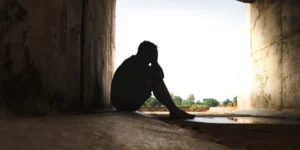How do various cultural backgrounds in South Africa influence individual experiences in addiction recovery? Get help from qualified counsellors.Diversity Shapes Every Journey Toward Healing And Renewal
Addiction Treatment Isn’t “One Size Fits All”
South Africa is a country that celebrates diversity on paper yet struggles to translate that diversity into meaningful, safe, and culturally honest spaces within addiction treatment. When people talk about addiction publicly, they often oversimplify the matter or reduce it to convenient stereotypes, while the individuals who are suffering feel unseen, unheard, and deeply misunderstood. The result is that countless South Africans avoid seeking help, not because they lack the will or desire to improve their lives, but because they instinctively distrust treatment environments that do not represent or respect who they truly are. Traditional rehabs often approach addiction with a blanket method, assuming everyone who walks in has the same experiences, family dynamics, cultural background, belief systems, sexual identity, and emotional history. In a country as layered and inconsistent as South Africa, that approach is not only ineffective but dangerous. People need treatment that reflects their lived reality, not a generic template that erases their individuality, and until that shift happens, mistrust will continue to keep people imprisoned in silence.
Why So Many Avoid Treatment
Avoiding treatment is rarely a sign of stubbornness or denial, more often, it is a response to years of feeling judged, misunderstood, or dismissed by institutions that claim to help but do not know how to communicate with people from different backgrounds. Shame, guilt, and fear of judgement become internalised to such a degree that reaching out feels like stepping into a spotlight where every flaw will be exposed and dissected. Many individuals fear disappointing their families, offending their communities, or being labelled weak or irresponsible. They worry that counsellors will not understand the cultural or social context they come from. They assume treatment centres will impose values that contradict their own. In reality, these fears are not irrational, they are built from lived experiences where people have tried to seek help in the past and felt minimised, misunderstood, or pressured into fitting into spaces where their identity simply did not belong. When people anticipate judgement before they’ve even spoken, trust is broken before it begins.
When Treatment Doesn’t Fit the Life Someone Actually Lives
Addiction touches individuals from every imaginable background, and each person carries a unique story shaped by culture, family, community expectations, trauma, religious beliefs, sexuality, language, and economic realities. Yet many rehabs present a single, standardised model that assumes a universal experience of addiction, ignoring the vast differences in how people understand, cope with, and recover from substance use. This creates a painful disconnect where individuals walk into treatment and immediately feel like outsiders in a space that was supposed to help them heal. A queer person may worry about being judged or erased, a migrant may fear discrimination, a professional may fear vulnerability, and someone from a conservative or religious community may fear backlash. When an individual feels that treatment requires them to hide, soften, or mute parts of themselves to “fit in,” recovery cannot take root. People cannot heal in environments that require them to shrink.
Mistrust of the Mental Health System Runs Deep
South Africa’s history is built on inequalities and systemic failures, and mental health services have often mirrored these failures in ways that leave scars on communities. Many individuals carry generational mistrust of healthcare institutions, shaped by decades of cultural insensitivity, underfunded treatment facilities, racialised discrimination, and dismissive attitudes toward certain communities. People have walked into mental health settings only to be spoken to instead of listened to, judged instead of supported, or treated as stereotypes instead of human beings. That kind of experience does not fade easily. When someone feels unseen or misunderstood by the system designed to help them, the next time they need help, they keep quiet. Mistrust becomes a protective mechanism, a shield the person uses to guard themselves from further harm. Until treatment acknowledges this wound and works actively to repair it, people will continue to suffer in silence rather than risk being dismissed again.
The Cultural Weight of Addiction
Addiction does not occur in a vacuum; it unfolds within cultural ecosystems that dictate how acceptable it is to talk about personal struggles. In some communities, addiction is framed as moral failure, a character flaw, or a spiritual weakness. In others, it is treated as something to hide because “what happens in the family stays in the family.” For many South Africans, admitting to addiction risks social rejection, religious condemnation, or community shame. Some cultures expect absolute strength from men, emotional perfection from women, or obedience from children, creating pressure that pushes addiction further underground. When someone grows up in an environment where vulnerability is punished, seeking help feels like betrayal. The force of these cultural expectations can suffocate a person long before the substance ever does, creating a complex emotional landscape that treatment providers need to understand, not dismiss.
Who Gets to Feel Safe in Treatment?
Safety is not created by posters, slogans, or policies; it is created by people, representation, respect, and lived experience. Ask who feels safe in a traditional treatment centre, and the answer becomes uncomfortable. Many individuals find themselves walking into spaces where no one looks like them, speaks like them, or understands their background. LGBTQ+ clients fear judgement. Professionals fear exposure. Migrants fear prejudice. Young adults fear not being taken seriously. Women fear being silenced. People from conservative families fear cultural misunderstanding. Safety is not a default setting, it is something that must be intentionally created, and without it, people will remain guarded, withholding the very honesty that recovery requires.
The Reality Check
Addiction is an equal-opportunity destroyer. It does not check your language, faith, occupation, gender identity, or cultural background before it begins to unravel your life. However, recovery is deeply shaped by these factors because recovery demands vulnerability, honesty, and self-reflection, all of which require an environment where people feel respected and understood. Treatment cannot pretend identity does not matter, it must actively integrate identity into the recovery process. When someone feels genuinely recognised and valued, their trust increases, their commitment deepens, and the possibility of long-term progress becomes far more realistic.
Why Inclusive Treatment Saves Lives
Inclusive treatment is not a politically correct concept, it is an evidence-based necessity. When treatment centres recognise and honour a person’s individuality, the person becomes more willing to participate, less likely to withdraw emotionally, and more likely to stay engaged long enough to experience real change. Inclusivity leads to better communication, stronger trust in the counselling process, and a deeper sense of safety, all of which improve outcomes dramatically. People who feel respected heal faster because they stop resisting the process and start collaborating with it.
How Stigma Weaponises Identity
Stigma is not simply unkind; it is actively dangerous. It convinces people that admitting to addiction will ruin their relationships, their reputations, their careers, or their place within their community. Stigma attacks identity by framing addiction as shameful and the person suffering as flawed. This leads to silence, and silence leads to deterioration. People delay seeking help until crises erupt, job losses, breakups, financial collapse, medical emergencies, all because they feared being judged more than they feared the substance itself. Stigma does not just shame people, it traps them in a cycle where secrecy becomes survival.
The Socio-Economic Trap
South Africa’s socio-economic inequality makes addiction recovery even more complex. Many individuals have no medical aid, no transport, and no access to treatment facilities within reasonable distance. Some cannot afford therapy, while others do not know where to start looking for help at all. In rural or township areas, addiction support is often limited or inaccessible, creating an environment where addiction festers without intervention. Treatment must adapt to economic realities instead of assuming everyone has the same resources, and that requires platforms that broaden access rather than limit it.
Identity Isn’t Just About Culture and Sexuality
Identity extends far beyond culture, race, and gender. It includes trauma history, socio-economic status, family expectations, education, religious beliefs, community stigma, personal boundaries, coping styles, and life experiences. Each of these layers shapes how someone understands addiction, how they respond to treatment, and what kind of support environment they need. Clinicians who ignore these layers risk missing the most important parts of a person’s story, while those who acknowledge them can design treatment plans that feel less like generic protocols and more like personalised support systems.
Why People Fear Treatment
Most people who are battling addiction appear strong on the outside because they have learned to protect themselves by performing stability. They convince themselves they can handle things alone because the alternative feels too risky. Their fears are often unspoken but deeply real: fear of judgement, fear of being misunderstood, fear of disappointing their families, fear of exposing private struggles, and fear that treatment will shame them rather than support them. Pretending to be fine becomes easier than risking vulnerability, especially in environments where identity is used against them rather than embraced.
The Call for a New Kind of Treatment Culture
If addiction treatment intends to become genuinely effective in this country, it must evolve into a system that sees people as individuals, not diagnosis codes. Providers must develop cultural intelligence, create emotionally safe spaces, offer language accessibility, respect sexual and gender identities, understand religious nuance, and acknowledge socio-economic limitations. Treatment must become flexible rather than rigid, human rather than clinical, and collaborative rather than prescriptive. Individuals need to feel that they can bring their full identity into treatment without fear of being corrected, judged, or erased.
Identity Isn’t a Detail. It’s the Map.
Addiction may be universal, but recovery is deeply personal, and the only way to support true healing is to recognise the identity of the person seeking help. Identity shapes how people break, how they cope, and how they rebuild. When treatment ignores identity, it alienates the very people who need support the most, when treatment embraces identity, it becomes a refuge where people can finally breathe, speak openly, and participate in their own recovery without fear. Platforms like WeDoRecover exist to make sure individuals are matched with treatment environments that value their full humanity. Your identity is not something to hide or soften, it’s the blueprint for your healing, and you deserve support that honours every part of who you are.

The Dangerous Illusion of “I’ve Got This” There’s a certain kind of confidence that comes…

It begins harmlessly, a drink to unwind, a toast to celebrate, a night out with…

Why Drug Addiction Stories Make People Feel Something Drug addiction stories are rarely pleasant. That’s…








